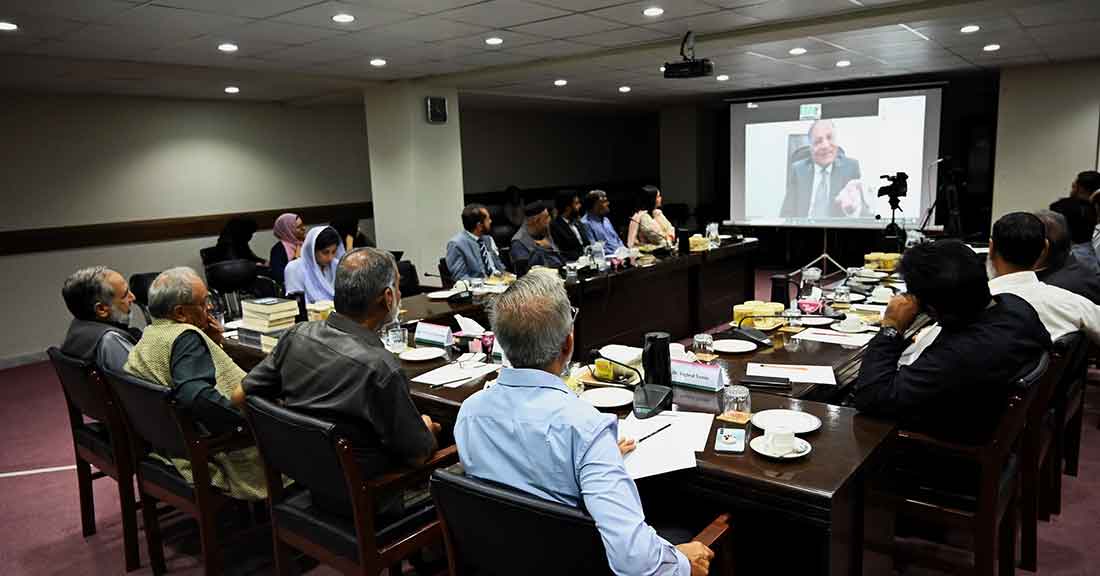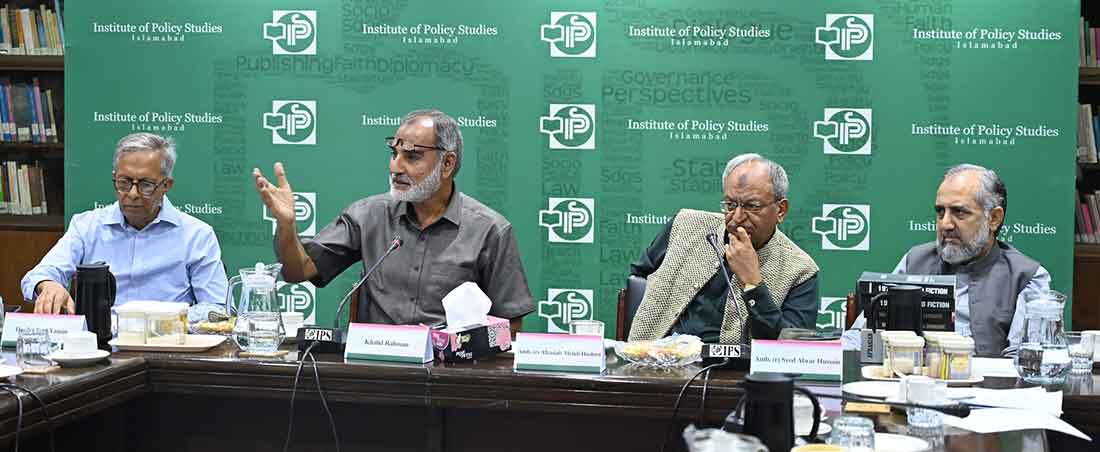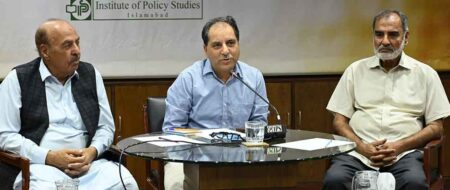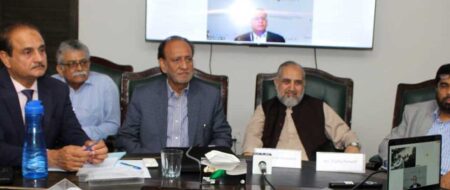‘Transformation in Bangladesh: Emerging Domestic and Regional Scenario’
Bangladesh’s evolving situation seen fueled by resistance to Indian influence among other factors
The evolving situation in Bangladesh is driven by multiple factors. It goes beyond dissatisfaction with unemployment and administrative problems as there is also resistance to Indian influence. This unrest reflects a broader, ongoing process and it would be premature to consider it conclusive.
Following the resignation and departure of former prime minister Sheikh Hasina, Bangladesh’s interim leader, Muhammad Yunus, with his international stature, faces a critical test in this environment. Whether he can develop a truly indigenous agenda to address these complex challenges remains to be seen. Meanwhile, it is crucial to recognize that the interests of Pakistan and Bangladesh are not mutually exclusive; both nations can benefit from cooperation. A prudent approach would be to stay cautious and closely monitor the unfolding events.
This was observed during a session on ‘Transformation in Bangladesh: Emerging Domestic and Regional Scenario’, held at IPS on August 15, 2024. The session, chaired by Khalid Rahman, chairman IPS, was addressed by Ambassador I Afrasiab Mehdi Hashmi, as the keynote speaker, and Ambassador I Rafiuzzaman Siddiqui, both of whom have served as Pakistan’s high commissioners to Bangladesh.

Shedding light on the recent developments, Ambassador Afrasiab noted that Pakistan now has an opportunity to reassess and strengthen its ties with Bangladesh. He observed that while Bangladesh may have grievances with Pakistan, there is no deep-seated animosity.
Meanwhile, resistance to Indian influence has been growing. Although the situation is still unfolding, it has sparked concerns in India, particularly about the potential resurgence of the Jamaat-i-Islami and the Bangladesh Nationalist Party.
On the other hand, it has also raised concerns in Bangladesh that India’s strategic interests might lead it to employ various tactics aimed at influencing the country’s political landscape, particularly to prevent the rise of these groups due to their historical stances and perceived anti-India sentiments. Furthermore, as India, under the BJP and Modi, has been characterized by a radical nationalist agenda, its political direction and approach toward neighboring countries, including Bangladesh, are increasingly being questioned.
Ambassador Rafiuzzaman emphasized the need and importance of adopting a balanced and watchful approach in response to the emerging situation. He suggested that the new Bangladeshi government could offer Pakistan opportunities for enhanced bilateral trade, cultural exchange, and youth interactions.
In his concluding remarks, Khalid Rahman noted that various national, regional, and international factors are influencing the current situation in Bangladesh. He highlighted that while dissatisfaction among Bangladeshis is fueled by various issues, Sheikh Hasina’s close association with India also significantly contributed to growing resistance against Indian influence. He said that India’s policy influences had increased the dictatorial pressure in Bangladesh. As both Congress and the BJP share similar approaches on external issues, the developments unfolding in Bangladesh underscore the need for India to reassess its external policies, he added.

|
IPS TV |
| Pakistan has an opportunity to strengthen its ties with Bangladesh: Ambassador Afrasiab Hashmi |
Balanced, watchful approach needed w.r.t emerging situation in Bangladesh: Amb Rafiuzzaman Siddiqui |












